Filter:

Feng-Gong Premium - Ø 40 - 70 cm

Feng-Gong Classic - Ø 40 - 70 cm
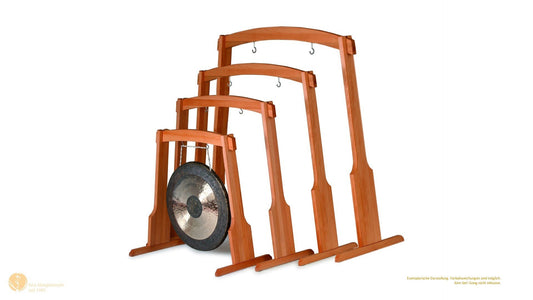
Gong stand Harmony, mini - medium

Gongständer Boing aus Buche, für Gongs Ø 40-55 cm
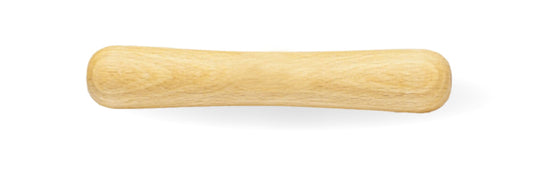
Hess Sound Gong Handle

TamTam-Gong Premium Ø 40 - 70 cm
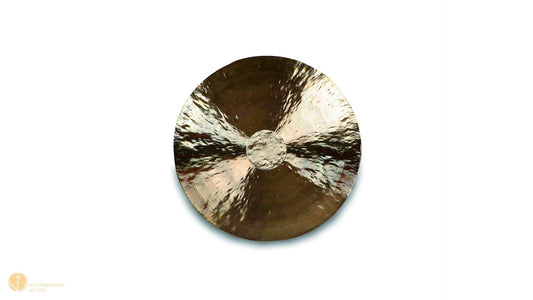
Feng-Gong Premium - Ø 80 - 95 cm
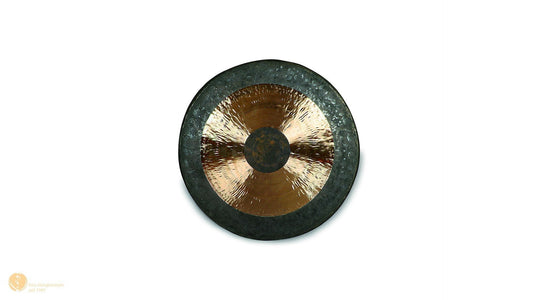
TamTam-Gong Premium - Ø 18 cm
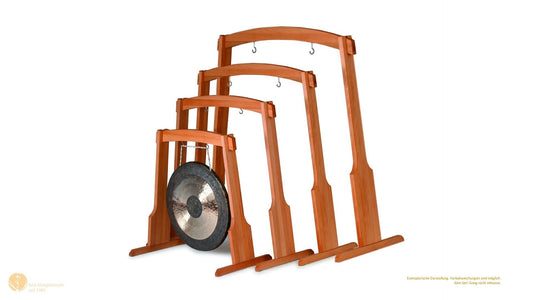
Gong stand Harmony, large - extra large
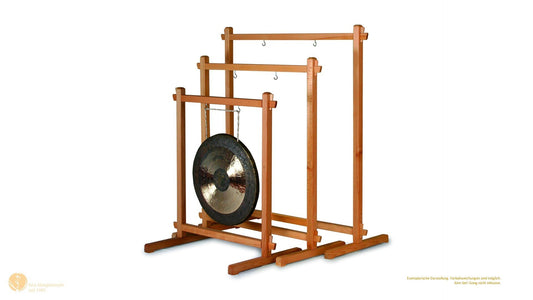
Classic gong stand, medium - large

TamTam-Gong Premium Ø 80 - 95 cm
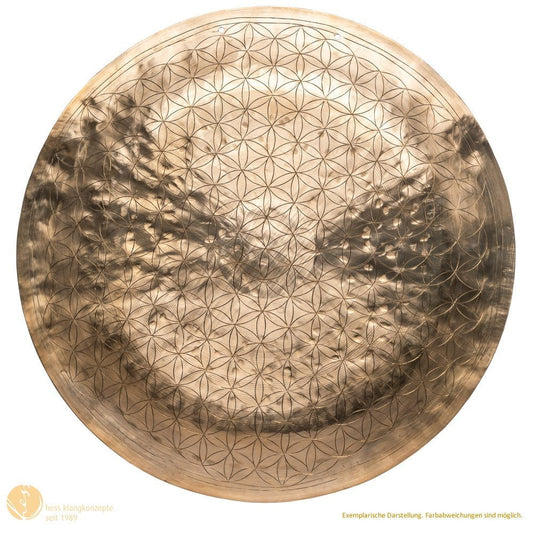
Gong „Blume des Lebens“, Ø 50-53 cm
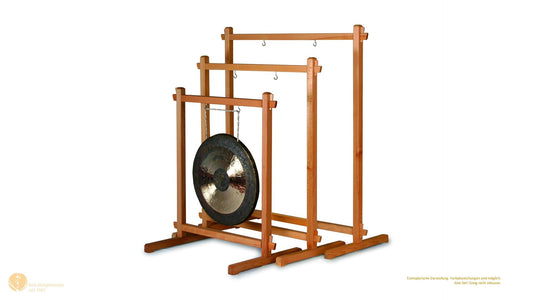
Gongständer Klassik, klein, für Gongs Ø 50-60 cm
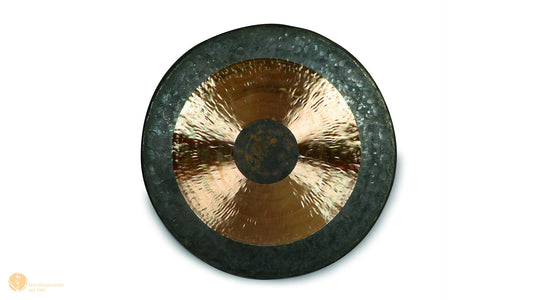
TamTam-Gong Premium Ø 100 - 120 cm
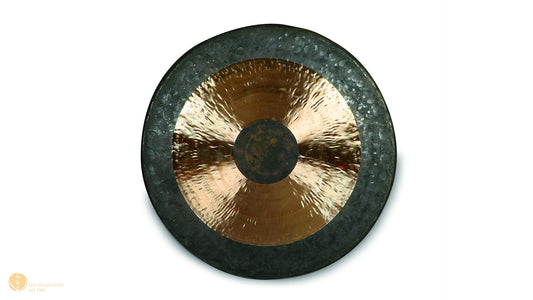
TamTam-Gong Classic Ø 80 - 95 cm
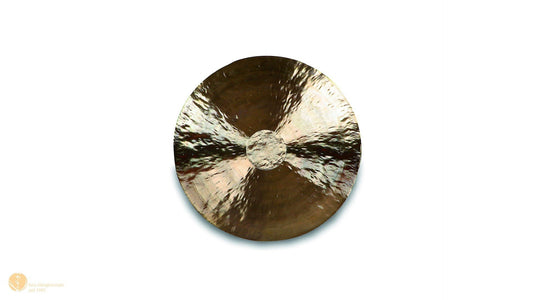
Feng-Gong Classic - Ø 80 - 95 cm
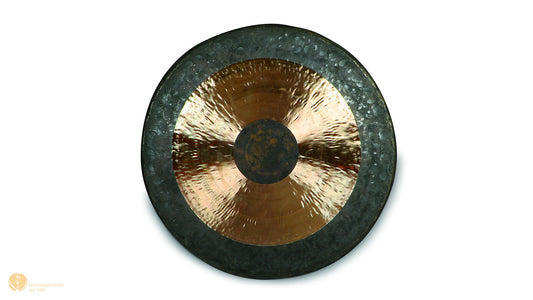
TamTam-Gong Classic Ø 100 - 115 cm

Tibetan cymbal, sound hat
Which gong should I buy?
Gongs differ in size, appearance and sound frequency. The quality of the materials used determines the sound intensity and effect. You should therefore thoroughly check the metal composition and workmanship before making a purchase. You should also be clear about the purpose for which you want to use the gong: large gongs are generally better suited for therapeutic use and meditation; gongs with a smaller diameter, for example, for energizing small rooms or sound fantasy journeys.
Through regular on-site visits to our production facilities, we have gained a great deal of knowledge regarding the manufacture of gongs and can coordinate our special sound tunings and quality standards with the master gong makers. Anyone wishing to buy a gong or accessories such as gong bags, can rely on the very high quality of our products.
What distinguishes Peter Hess® Premium Gongs?
The manual production of the gongs involves many forging processes that make each gong unique. After production, the gongs are individually tested and listened to. Only those gongs that meet our high quality standards in terms of sound and appearance are awarded the Peter Hess® Premium Gong seal. The second best quality, which is still very high in comparison, receives the seal Peter Hess® Classic Gong. The Classic quality is therefore the slightly cheaper alternative.
What effect does a Feng Gong or TamTam Gong have?
Depending on its size - and the associated frequency - a Feng-Gong or TamTam-Gong can have a different effect on different areas of the body. Small gongs with very high frequencies have a stronger effect on the head area; medium gongs with medium frequencies on the chest area; and large gongs with low frequencies on the abdominal area.
The frequency is not only influenced by the size of the gong, the point of impact also determines the sound: an impact in the center produces a pleasantly deep sound; an impact at the edge produces a high-pitched sound.
What size should a Feng or TamTam gong be?
In addition to the striking technique and the gong mallet used, the size of the gong also has an influence on its sound spectrum. Which size is right for you depends entirely on how and where you want to use the gong.
The larger it is, the more voluminous and usually the deeper its sound. Feng or TamTam gongs from a diameter of around 30 cm already sound very impressive and are often used as signaling devices. A diameter of around 45 cm also allows for multi-faceted playing. Gongs with a diameter of 70 cm or more are particularly suitable for therapeutic use.
Where does the gong come from?
From a musicological point of view, gongs belong to the group of metal ideophones. In Southeast Asia, they are among the oldest and most important musical instruments. However, it is not clear where they originated and how they were used.
Burma, China, Annam and Java are considered to be the main centers of gong culture, whereby the so-called "kettle drums", bronze kettle drums, are recognized as the forerunners of gongs. Various forms of gongs developed from these, such as the feng and tam-tam gongs, which spread over the centuries via the Silk Road to Japan.



















